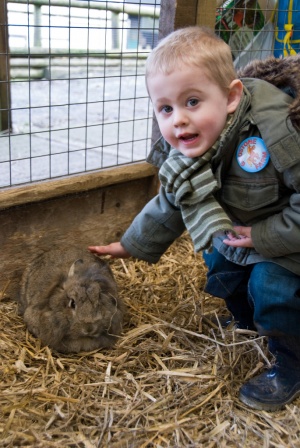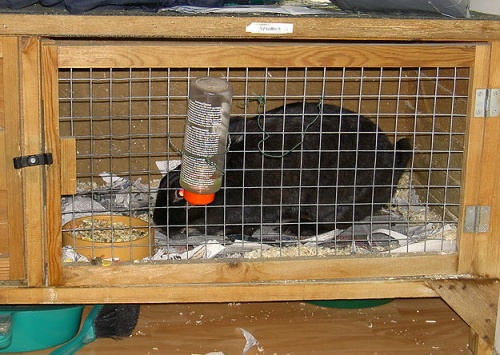
Rabbits, just like humans, have individual personalities. Adult rabbits are products of their genetics and experiences. Before rabbits reach the stage when hormones become active, they should be spayed/neutered which usually improves their personality. It should be noted that female rabbits run an 80% chance of uterine cancer if not spayed by 5 years old.
Some people believe even after de-sexing, female rabbits are more territorial while the males are more relaxed but protective.
Before the age of 2, some rabbits don’t like to be handled too much. As ground dwellers, not all rabbits enjoy being held as it makes them feel insecure. Discover whether your rabbit likes to be held or not and respect his/her wishes. Rabbits are happier cuddling up to you while you’re lying down.
There are times when you’ll have to pick your rabbit up such as trip to the veterinarian. Place one hand under the ribcage and the other hand under the rear end holding the feet against your body to prevent kicking. If your rabbit puts up a real fuss, put him down and try again.
When choosing a rabbit, with their strongly individual personalities, breed doesn’t play an important role in rabbit behavior.
Begin training your rabbit in a quiet room with no distractions. Have some treats with you – small pieces of carrots, apple, banana, lettuce. Sit or lie on the floor quietly and wait for the rabbit to approach you. When the rabbit decides to investigate, offer a treat holding it while s/he nibbles. This will help build feelings of trust and safety. After doing this for several days, extend a finger to offer a pat on the forehead or below the ears, something the rabbit enjoys. Be patient and don’t force any interactions. Keep to the routine until your rabbit is comfortable with your presence.
Rabbits adopted from abusive situations can be very fearful and mistrustful. They need lots of patience and time to adjust in order to trust humans again. Shown love and affection and a safe place, they will respond.
Rabbits are not always the best pet for a young child. Children should always be supervised when interacting with a rabbit. Don’t let a young child pick up a rabbit – they have delicate bones and can easily be mishandled and injured. And a rabbit’s kick can cause injury to the child.
Remember that rabbits are prey animals and can be shy at first. But with patience and gentle handling and love, they can become delightful companions.



